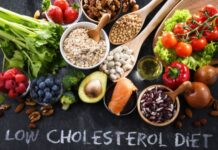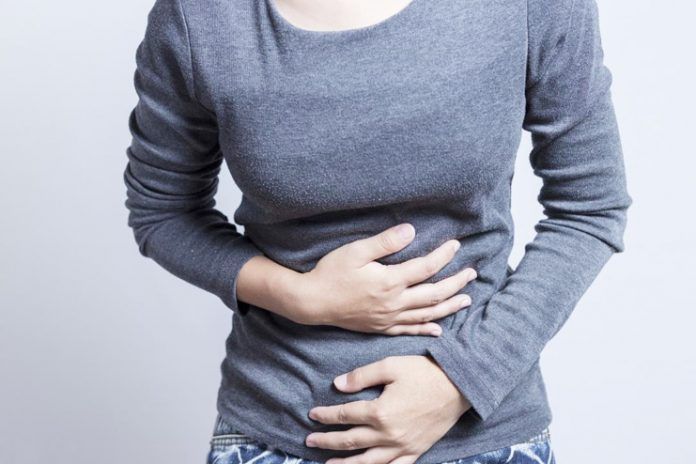Affiliate Disclaimer
Some links in this article are affiliate links. We may earn a small commission if you make a purchase through these links, at no extra cost to you. We only recommend products we find useful to our readersHave you been persistently experiencing bad stomach pain after eating? Has it been occurring in regular intervals or just after you consume a specific kind of food?
If the signs and symptoms of persistent stomach pain after eating are prolonged, it is best to know that there might be a number of underlying reasons for the same. Consult a doctor to source the root of the problem and administer the remedies or medications accordingly.
In this article, we are going to shed some light on the reasons for stomach pain eating along with some home remedies that can help treat the condition and ensure to keep it at bay.
What Causes Stomach Pain After Eating?

The list of causes behind your stomach ache after eating doesn’t just limit itself to the boundaries of just one or two causes but multiple ones.
Some of the potential reasons for stomach pain after eating include:
Any form of food intolerance
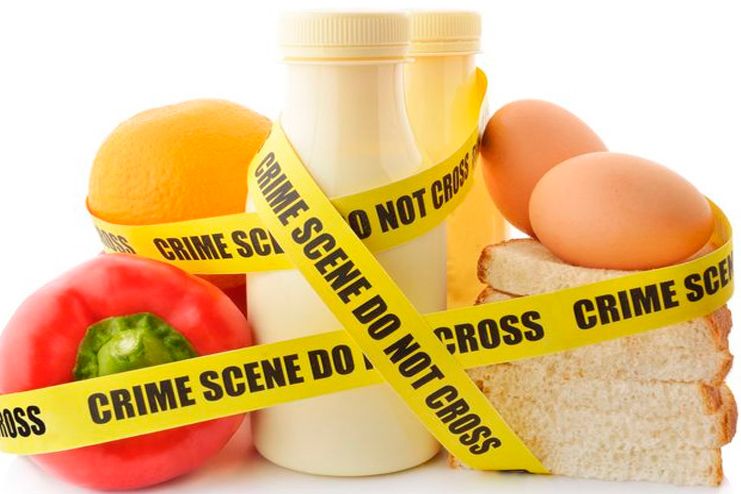
Food intolerance is not specifically your own aversion to food but your body’s aversion to it. There are a number of food items that we eat unknowingly without understanding that our body isn’t treating that well which often causes stomach distress and uneasiness.
When talking about food intolerance, there are primarily two distinct and primary types that most of the people are aware of – gluten intolerance and lactose intolerance.
In case of gluten sensitivity or intolerance (R), the body treats the protein from the grains as a threat, thereby pushing the body under a condition of stress, thereby causing cramps and pain after eating. The grains that might induce such symptoms of nausea, diarrhoea and pain include wheat, barley, couscous and even pasta.
It is almost similar with the case of lactose intolerance (R) which is induced by any form of food item consisting of lactose elements in it like that of milk, cheese or any other form of dairy products. The sugars in the milk are what causes the pain and cramps in the stomach along with bloating and flatulence.
Food Allergies Can Cause Stomach Ache After Eating
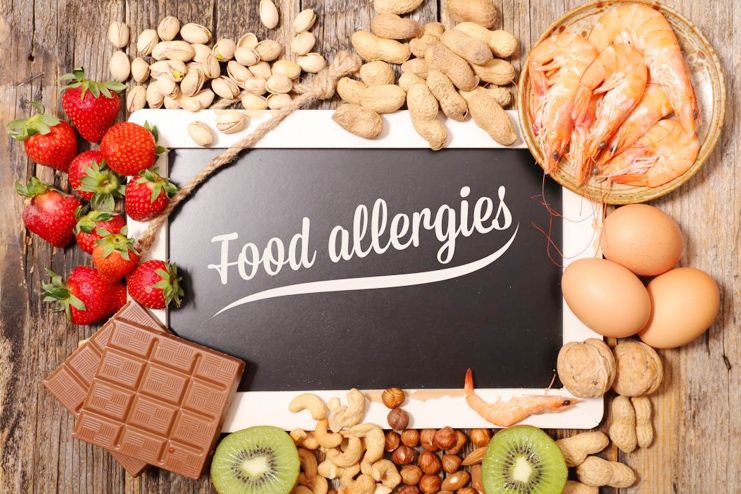
Food Allergies imposes the body to go into its flight or fight mode to combat against the foreign particles introduced in the body. This, in turn, triggers the immune system to push the body into stress and heighten the levels of stress hormones and boosts the activity of the immune system to release the necessary compounds to fight the allergens in the body.
There are two stages of food allergies (R), one that affects you on the milder end and the other that goes on imposing a full force blow on your body.
If you are experiencing minimal symptoms of stomach pain after eating along with runny nose and rashes or watery eyes, opt for the remedies that have been administered to you.
If the symptoms become harsher and severe with wheezing, shortness of breath, chest pain, or palpitations, immediately seek help or keep an EpiPen handy.
Although the allergens are always going to vary from person to person, some of the common ones include nuts, shellfish, strawberries, milk, soy etc.
Ulcers in the Stomach or initial part of the Small Intestine
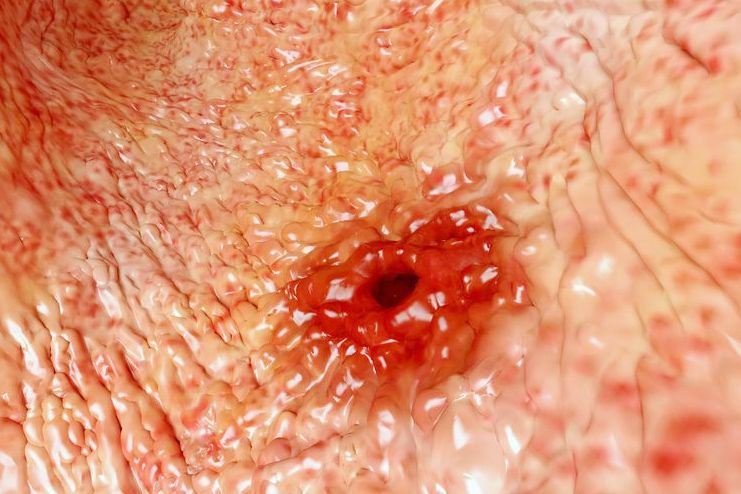
Yet another important cause why your stomach hurts after eating anything is probably because of the presence of ulcer, either in the stomach or the initial part of the small intestine (duodenum). Many people who suffer from such conditions often complain that the pain is not just after eating food but sometimes stretches along through the nights as well.
The site of the ulcer is easily traced by the kind of symptoms you showcase. If the pain you feel is just right after your consumption of food, it is most likely that your ulcer is in the stomach (R). If the pain affects you after a few hours, it is most likely that the ulcer is in the small intestine because the food takes times to travel down the small intestine.
The presence of ulcer in the stomach or even the intestine causes inflammation so when the food passes through that passage, it inflicts pain.
Food poisoning can cause stomach ache after eating
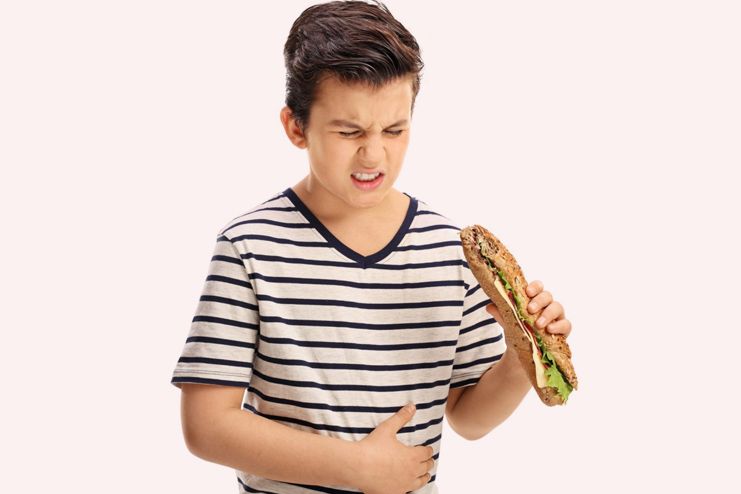
Consumption of any kind of food item contaminated with bacteria or any other form of microbe is one of the most common reasons for stomach pain after because of the food poisoning it causes. It is believed that the E.coli infestation is one of the most common bacteria that are the causative agent behind the symptoms of food poisoning.
Some of the common symptoms of food poisoning include nausea, stomach pain, abdominal distress, diarrhea and even fever at times.
Irritable Bowel Movement
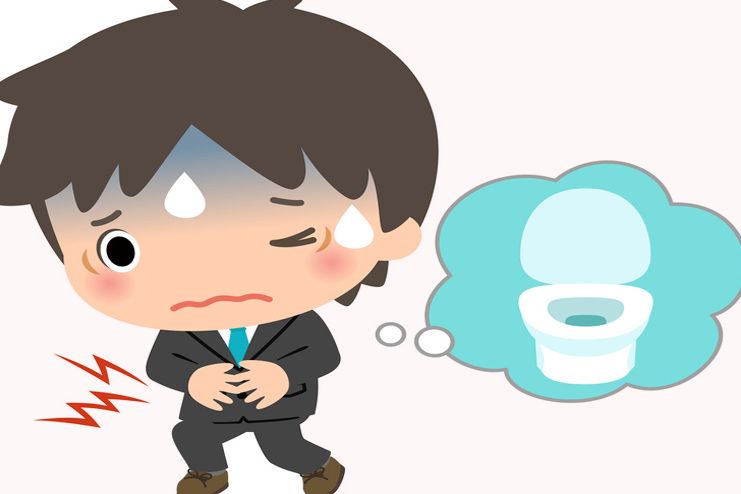
Irritable bowel movement which induces irregular defecation can often cause a number of problems, especially stomach ache after you consume food. The lack of a healthy diet consisting of necessary fiber is what contributes to the signs and symptoms of constipation.
Treat the problem with the array of home remedies for constipation because the lack of regular bowel movement can often put negative pressure on the other organs of the body that can affect the normal functioning of it.
Crohn’s disease
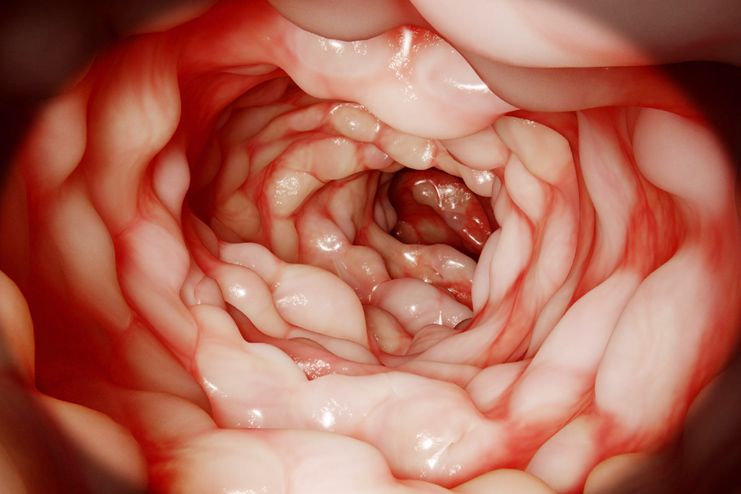
If you were worried about the common inflammation of the part of the gut because of ulcers, the concept of Crohn’s disease is going to worsen you worst nightmares.
Crohn’s disease (R) is characterized by the chronic inflammation of the entirety of the GI tract. The inflammation is what causes the stomach pain after eating and makes it harder to eat and digest the food.
The symptoms of pain and cramping often start off being mild in the initial stages but then go up till severe conditions which are what makes the person suffering from it shy away from food because of the consequences it brings.
People suffering from Crohn’s disease often tend to avert themselves from eating fiber rich food as it makes the large intestine contract, thereby inflicting a lot of pain in the stomach.
Gallstones can cause stomach pain after eating
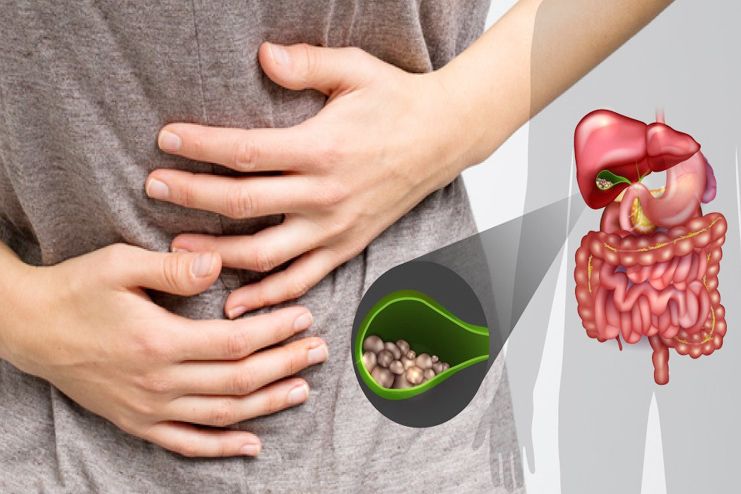
The presence of gallstones is sometimes hard to detect in the initial stages of its inception because majority of the people ignore it as normal stomach or abdominal ache. But, if the pain is persistent and gets triggers after your eating, there are chances that it is because of the presence of stones in the gall bladder (R).
This condition is characterized by the inflammation in the gall bladder along with pain along the perimeter of the same. Some of the common causes behind the gall stones are primarily because of being overweight or having high cholesterol levels in the body.
Home Remedies for Stomach Pain after Eating

With the list of causes that he priorly mentioned, it is necessary to actively seek out natural remedies for stomach pain after eating which is exactly what this section of the article is going to focus on.
Some of the common home remedies in the treatment for stomach pain after eating include:
1. Heating Pad or Hot Water Bottle

The usage of heating pad or even a hot water bottle is very effective is temporarily diffusing the pain and cramps out. It helps in relaxing the muscles and also tones down the pain that is often caused because of inflammation.
What To Do?
- Place a heating pad on your stomach or the area that’s paining the most. Leave it on for 10-15 minutes, adjusting the temperature in the meantime.
- You can even use a hot water bottle instead if you don’t own a heating pad
- Even, heated up rice inside a sock has beneficial effects in this regard
2. Mint
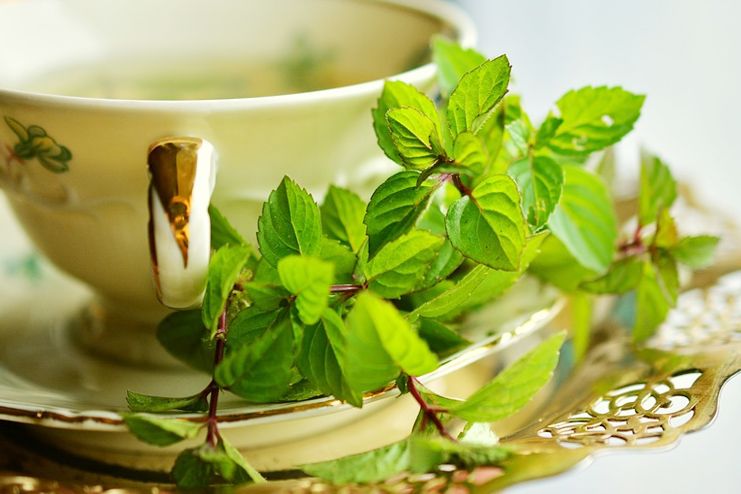 The mint is that one herb that has beneficial impacts as a treatment for stomach pain after eating. The cooling and fresh properties of the mint are what aids in subsiding the churning pain and cramps in the stomach.
The mint is that one herb that has beneficial impacts as a treatment for stomach pain after eating. The cooling and fresh properties of the mint are what aids in subsiding the churning pain and cramps in the stomach.
Not just that, it is also believed that mint has slight analgesic properties (R) which is what helps soothe the pain in the stomach.
What To Do?
- Chew on mint leaves whenever you feel your stomach aching
- Drink peppermint tea twice or thrice a day to relieve the stomach ache. Make sure to drink it warm because that’s what soothes the stomach.
3. Fennel
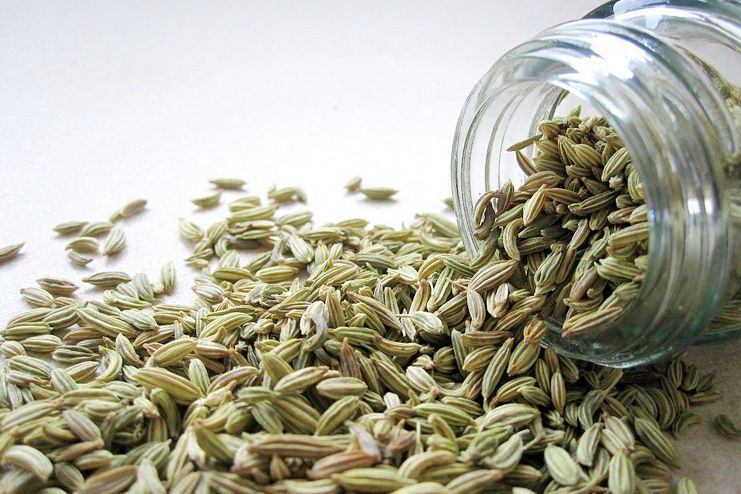 The fennel seeds have amazing effects in promoting digestion and reducing the signs and symptoms related with stomach bloating and gas. While the raw fennel (R) does work best for treating the symptoms of bad stomach pain after eating, even the fennel seeds work well enough.
The fennel seeds have amazing effects in promoting digestion and reducing the signs and symptoms related with stomach bloating and gas. While the raw fennel (R) does work best for treating the symptoms of bad stomach pain after eating, even the fennel seeds work well enough.
What To Do?
- Chew on raw fennel slices whenever you feel bloated or uneasiness around your stomach or abdominal area
- Steep fennel seeds in some water overnight and drink that to boost the overall digestive health
- You can even indulge yourself with some fennel tea to relieve the symptoms of stomach ache after eating
4. Ginger
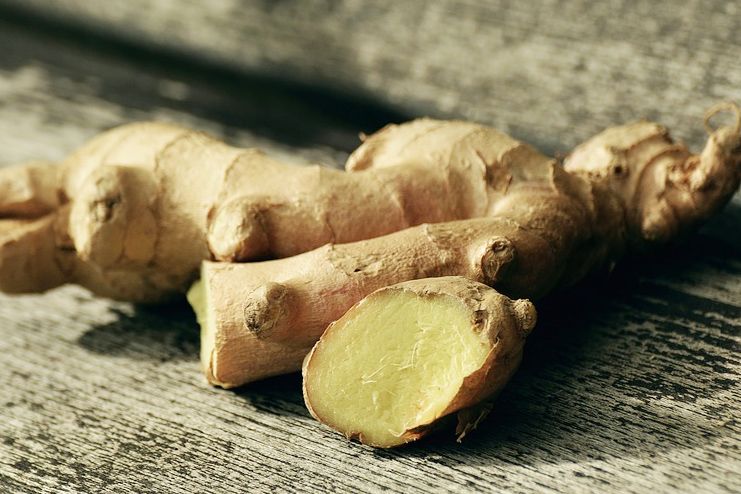 Ginger, for the treatment of stomach pain, is a very common remedy. Because of the amazing anti-inflammatory (R) properties, ginger is definitely a great option to tone down the pain induced by the inflammation in the gut.
Ginger, for the treatment of stomach pain, is a very common remedy. Because of the amazing anti-inflammatory (R) properties, ginger is definitely a great option to tone down the pain induced by the inflammation in the gut.
What To Do?
- Drink ginger tea twice or thrice throughout the day
- You can also steep a piece of ginger in warm water and leave it for 5-10 minutes. Add some honey to it and drink it gradually to get rid of the pain in the stomach
5. Rice Water
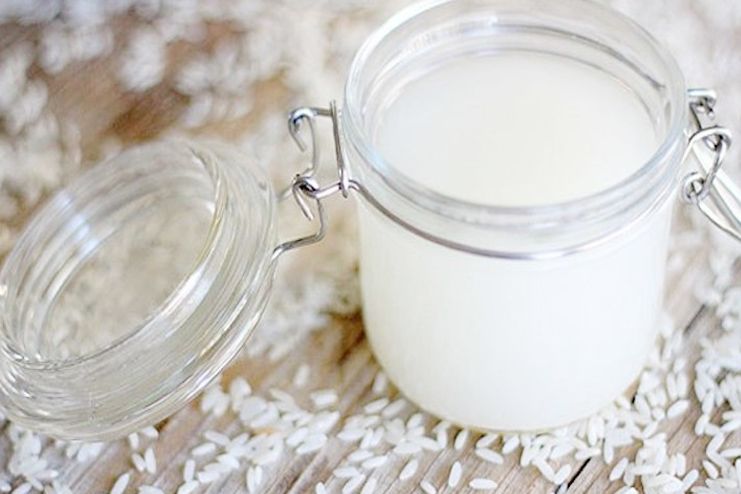
Rice Water is basically the water that’s left after you are done cooking the rice. As weird as it sounds, this actually does help in treating the pain that one feels in their stomach and abdominal region after the consumption of food.
Cooked rice water (R) helps coat the inside of the stomach which often times combat the pain that one feels because of gastritis or even ulcers.
What To Do?
- Strain the water after the rice is cooked
- Keep that in a bowl and let it cool down
- Drink that to relieve the symptoms of stomach pain. It helps soothe your stomach. If the taste, on its own, is overwhelming, add some honey or lemon to it
6. Apple Cider Vinegar

When suffering from a terrible stomach ache after eating, the last thing you want to do is drink something acidic like that of apple cider vinegar but studies show that this remedy actually does work.
The anti-microbial properties of the apple cider vinegar help fight any kind of microbial infection in the stomach that could cause the pain. It even helps in balancing out the acidic levels in the stomach, thereby aiding in treating the problems related to acid reflux.
What To Do?
- Mix one tablespoon of apple cider vinegar to a glass of warm water
- Add a teaspoon of honey for taste
- Drink this to relieve the stomach pain and the additional distress you are feeling after eating
7. Asafoetida
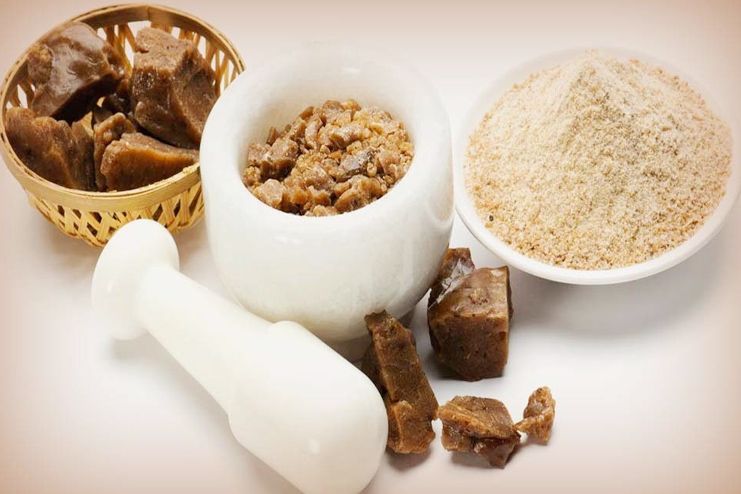
Asafoetida, otherwise known as hing in India, is a very popular India spice that is used for the treatment of indigestion and upset stomach.
It is believed that is relieves the conditions of bad stomach pain after eating by helping relax the gut muscles and perishing the bacterial or other microbial growth in the entire GI tract that could be contributing to the stomach ache.
What to do?
- Mix a pinch of asafoetida powder to a glass of warm water
- Drink this gradually in sip to help relieve the stomach pain
8. Plain Soda (not the sugary ones)
 If your stomach hurts after eating anything and it’s primarily because of bloating or indigestion, the consumption of club soda can be an amazing remedy to treat the problem and the symptoms it accompanies.
If your stomach hurts after eating anything and it’s primarily because of bloating or indigestion, the consumption of club soda can be an amazing remedy to treat the problem and the symptoms it accompanies.
The fizzy drink helps provide relief from indigestion and treats the signs of bloating but getting rid of the accumulating gas in the GI tract.
What To Do?
- Sip on a glass of normal,non-sugary soda to help with the stomach ache
How Long Does Stomach Pain Last After Eating?
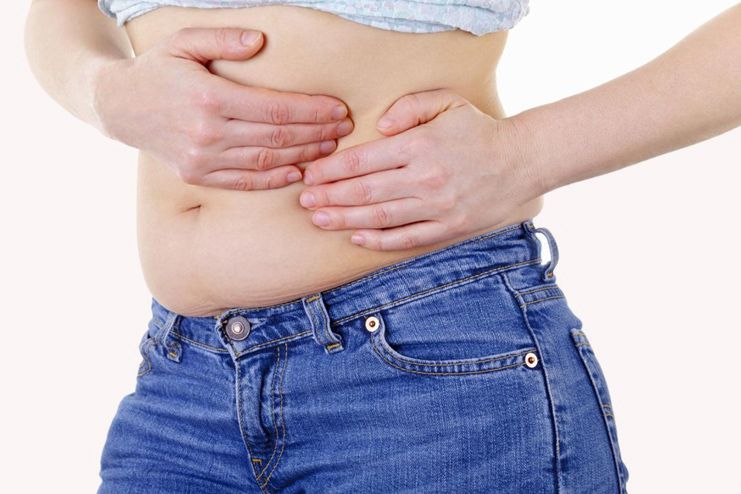
The severity of the stomach ache is what deduces the time frame of how long it will last. If the cause behind the stomach ache is mild and not something way too serious, then the administration of the remedy for stomach pain after eating will start showing its effects soon after it has been administered.
In normal terms, the stomach ache normally lasts from 30 minutes to 6 hours to sometimes even an entire day. If the conditions are severe and something chronic, there are chances that the pain won’t subside easily and will be persistent. In times like these, you need to ensure to consult a doctor as soon as possible to get the reasoning behind the condition.
Stomach pain after eating, acute or chronic, is not a good sign. It can easily be an indicative sign of a number of physiological impairments and other underlying reasons. This is the reason why one needs to not take it lightly and actually pay heed to it.
In this Article




